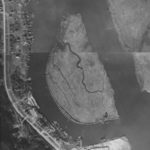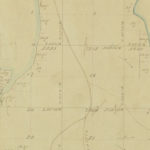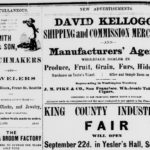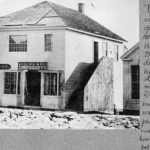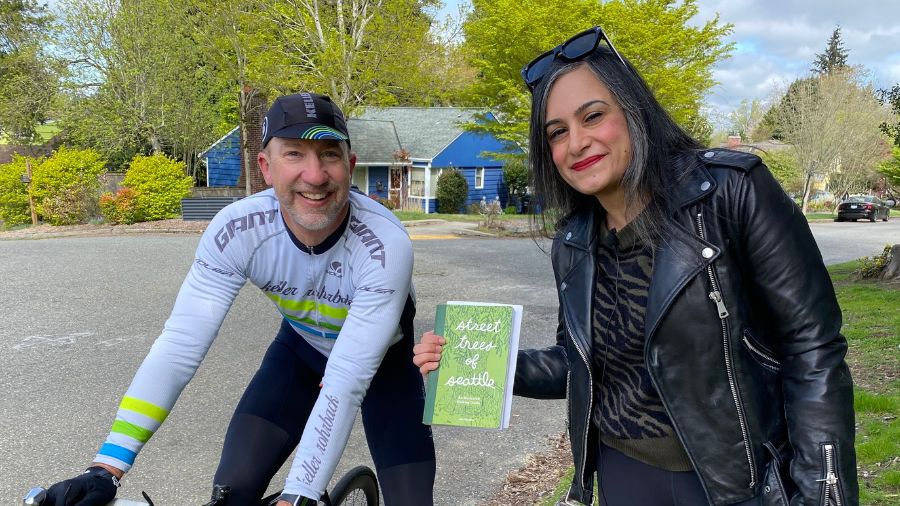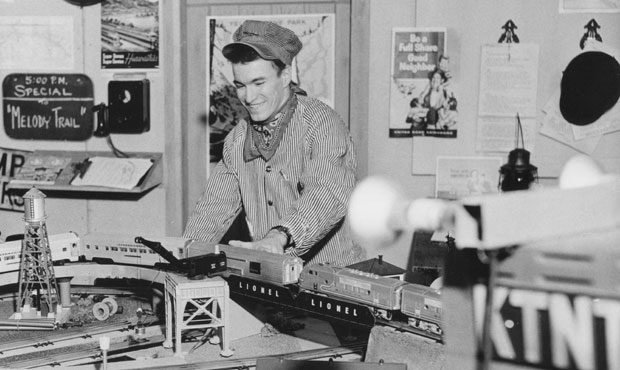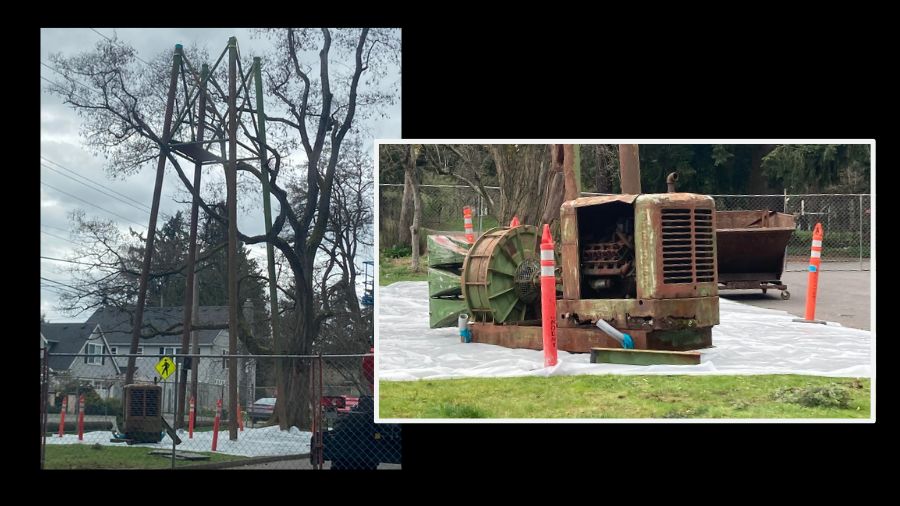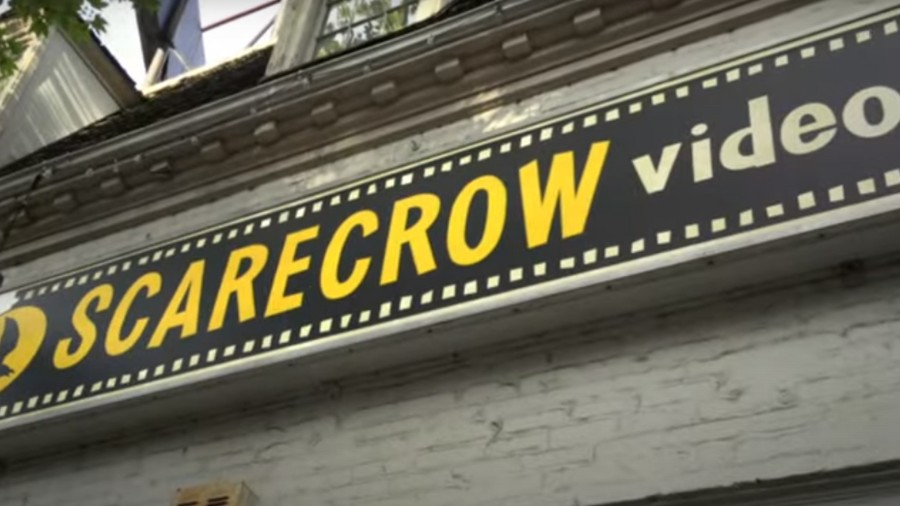All Over The Map: Mystery of Kellogg Island solved by local historian
May 28, 2021, 6:15 AM | Updated: 11:23 am
Extra! Extra! Stop the presses! The mystery of Kellogg Island has been solved!
OK, so you might not remember that a search for – and the mystery of – the namesake of Kellogg Island was discussed on an installment of KIRO Radio’s “All Over The Map” back in June 2019.
Kellogg Island is one of my favorite spots anywhere. It’s in the Duwamish River, not far from Elliott Bay. What sets Kellogg Island apart is that it is one of the last remaining natural parts of the river from the thousands of years before European settlers came.
It’s just a little piece of land, only a few acres, with the main dredged navigation channel on one side, and a nice, curvy little natural channel on the other.
You can see Kellogg Island in person from a Port of Seattle park, and it’s often visible from the air – especially if you’re coming in for a landing at SeaTac and approaching from the north. It’s just magical.
That area along the river was known for much of the late 20th and early 21st century as Terminal 107 Park. After a recent ambitious effort by the Port of Seattle to more appropriately name its parks to reflect Indigenous place names, it’s now called həʔapus Village Park and Shoreline Habitat — pronounced “ha-ah-poos,” and which, according to the Port of Seattle, is the name “of a small stream draining across a flat on the west side of Duwamish River.”
Two years ago, I did some digging and came up with a couple of possibilities for the island’s namesake – a landowner and Seattle Fire Department chief named Gardner Kellogg, and a doctor on Whidbey Island named John Coe Kellogg. But there was no paper trail, and nobody I consulted – from the Port of Seattle to the Duwamish Tribe to a handful of local historians – could definitively say which, if any, was correct.
Then, a few days ago, my old friend Matt McCauley reached out. He’s an author and historian in Kirkland and a friend of this show (who I’ve known since high school).
Matt was doing some research and stumbled across Gardner Kellogg’s name on some property records for real estate near Seward Park. Matt knew about Gardner Kellogg’s fire department career, and he remembered the KIRO Radio story from two years ago. He started wondering what other property records might reveal. With help from Greg Lange at the King County Archives, Matt got ahold of old plat maps and copies of deeds.
“Seeing that Gardner Kellogg had a claim on the lake down there got me thinking about your old piece,” McCauley’s email said. “At first, I thought the relative nearness of [Gardner] Kellogg’s claim to the Duwamish may have tied into the island’s name in some way, so it occurred to me to check the first person to claim the island itself. … Turns out that lot 11 was purchased via cash sale in 1865 to … *drumroll* … David Kellogg.”
This may seem pedantic, but it’s worth celebrating when a granular detail about a pretty remarkable place can be nailed down definitively like this.
It’s also worth noting, McCauley says, that David Kellogg is an interesting character. In Seattle, he and his brother operated the city’s first drugstore. But before David Kellogg arrived here, his exploits were a tad more lively than simply selling sundries.
“This guy was like some kind of Natty Bumppo-esque, American frontier hero archetype,” McCauley wrote. “His bio is incredible, growing up on the Illinois frontier, seeking adventure during the 1850s in ‘Bloody Kansas’ as an abolitionist fighting with John Brown, traveling in the Rockies, signing on as a sailor to reach the West Coast — just incredible stuff.”
And David Kellogg’s interesting bio doesn’t end there, according to McCauley.
“In his later years, he seems to have been a go-to source for reporters on Seattle history topics,” McCauley continued. “They sought a quote from him when some remains of Yesler’s wharf were uncovered in Pioneer Square when digging the foundation for a new public restroom. And he had a lighthearted debate with Ezra Meeker over the Mount Rainier/Tahoma/Tacoma name, something we seem to be still debating over in one way or another.”
In later years, McCauley wrote, David Kellogg “seemed to have had a lot of irons in the fire in terms of his … professional and civic life. He and his wife, especially his wife, pop up in tons of society-type 1870-1910s newspaper mentions, socializing with Seattle’s A-list of the time.”
Of course, like Terminal 107 Park, Kellogg Island also had an earlier name. James Rasmussen of the Duwamish Tribe two years ago told KIRO Radio that it was known in the 19th century as Mud Island or Muddy Island. With the provenance of “Kellogg” now established, perhaps the Port of Seattle will consider a shift to reflect its pre-settlement name.
BJ Cummings is author of a book about the Duwamish River published in 2020 by UW Press.
“I’m super, super excited for Matt,” Cummings told KIRO Radio when told of McCauley’s discovery. “I’m super excited for him because I know from doing my own research that the smallest details – when you’ve gone down a rabbit hole and then you find the answer – [inspire] moments of celebration and dancing.”
“It’s not surprising,” that the namesake was someone like David Kellogg, Cummings continued. “I mean, we were pretty certain that there was a settler, but we didn’t know exactly which one.”
And should that settler’s name be retained?
“I’d love to see people revert to historical names just because I think it helps us understand and recognize our history,” Cummings said. “And maybe now that we know, we can have some way of commemorating Mud Island.”
Whatever the island is called, it’s an incredible place worth taking time to visit. And thanks to Matt McCauley and Greg Lange, we know just a little bit more about its relatively recent history. Let the moment of celebration and dancing begin.
You can hear Feliks every Wednesday and Friday morning on Seattle’s Morning News, read more from him here, and subscribe to The Resident Historian Podcast here. If you have a story idea, please email Feliks here.



